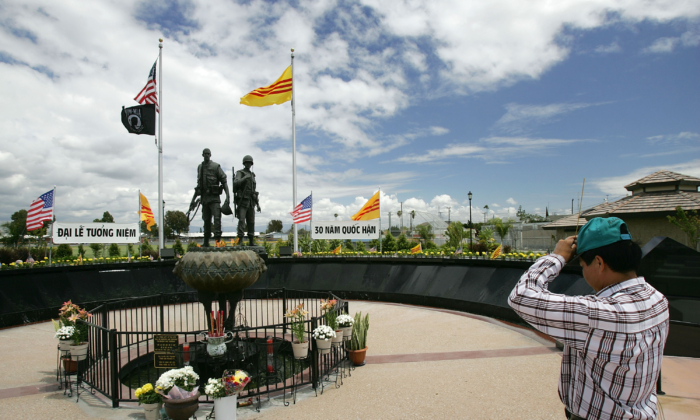military academies and bases.The voices of the few who questioned China’s designs were silenced, marginalized, or canceled. The Chinese Communist Party, with its many friends in the United States, had succeeded in infiltrating and influencing every aspect of American society, from politics to media to technology to education to business.
In conclusion, the story of America’s surrender to China in 2023–2024 mirrors the betrayal of South Vietnam in 1973–1975. The intentions and tactics of the anti-American forces have remained the same, from the antiwar protesters of the 1970s to the progressives and socialists of today. The influence of communist China in America has grown exponentially, with a vast network of collaborators working to transform the United States into a friend and ally of the Chinese Communist Party.
As Ecclesiastes said, “There is nothing new under the Sun.” The cycle of betrayal, appeasement, and surrender continues, with the United States once again finding itself on the losing end of history. Armed Forces academies, National Defense Universities, and other war colleges have always played a crucial role in shaping military strategy and leadership. However, the political landscape surrounding these institutions has shifted over the years.
In 1974 and 2024, the Left was politically aligned with the enemy in war, both internationally and domestically. By 2024, many American elites believed that the communist-ruled People’s Republic of China’s model was superior, despite its human rights abuses.
The moral equivalency argument made by some on the Left, such as Tom Hayden and the Committee of Concerned Asian Scholars, led to support for communist regimes like Maoist China. This support ignored the atrocities committed by these regimes and focused instead on perceived benefits.
The Vietnam War and its aftermath saw a divide among veterans, with groups like Vietnam Veterans Against the War opposing the war and demonizing returning POWs. The peace movement’s portrayal of Vietnam veterans as victims of the US government’s evil actions perpetuated a negative image that did not reflect the reality of many veterans’ experiences.
In 2024, the US military faced new challenges from China, but internal issues within the Pentagon, such as leadership’s alignment with leftist ideologies, raised concerns about military readiness. Leaders like General Mark Milley and Admiral Mike Gilday’s praise for communist ideologies and focus on social justice issues indicated a shift in the military’s priorities. The Air Force, facing a pilot shortage, made efforts to increase diversity by reducing the number of white officers from 80 percent to 67.5 percent, which resulted in a decline in white applicants for military service. The military also focused on rooting out extremists within its ranks.
The Air Force Academy shifted its disciplinary approach by no longer punishing cadets for traditional offenses like lying or cheating, but instead emphasizing the importance of using inclusive language. Similarly, West Point sent cadets for training in China under the Schwarzman Scholarship, raising concerns about potential indoctrination.
In the 1960s, college youth were often portrayed as privileged draft dodgers, but in reality, the younger generation strongly supported the United States in Vietnam and favored Nixon over peace candidate McGovern. However, by 2024, the legacy of the Vietnam peace movement had led to growing blame and division among millennials and Gen Z, with large minorities supporting socialism and communism.
Chinese students now play a significant role in American universities, with hundreds of thousands providing a base for CCP influence and engaging in aggressive behavior on campus. This contrasts with the struggle to find Vietnamese students willing to protest during the Vietnam War era.
The peace movement’s lasting impact has contributed to a culture of blame and hate in the U.S., paving the way for China’s influence across various sectors, including tech corporations that have developed oppressive technologies in support of the CCP.
Historians like Marilyn Young have called for a more nuanced understanding of U.S. history, acknowledging the country’s flaws and complexities. Young’s work on the Vietnam War has challenged traditional narratives and shaped how the conflict is taught in schools.
Please note that the views expressed in this article are the author’s opinions and do not necessarily reflect those of The Epoch Times.
Source link





